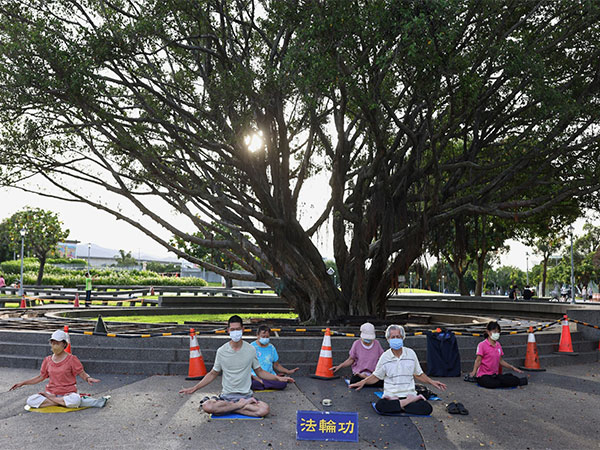New York parade spotlights Communist China's war against faith
On April 25, 1999, around 7 or 8 am local time, throngs of people and still more were streaming in. They talked softly, forming a long line on the sidewalk and carefully avoided stepping on the road or blocking traffic. Most people stood quietly still. Some were seated to meditate or read. A few passed around plastic bags to collect trash.

- Country:
- United States
Twenty-four years ago, thousands of Chinese citizens gathered outside of Zhongnanhai, the Chinese Communist Party's headquarters at the heart of Beijing. They were Falun Gong practitioners and were there to peacefully call on the Communist regime to end the harassment and suppression of their peers by local authorities. Less than three months later, the Chinese Communist Party (CCP) would launch an all-out persecution campaign against the spiritual practice.
This Sunday in Flushing, New York, more than three thousand took part in a parade to remember the historic appeal at Zhongnanhai and call for an end to the CCP's ongoing persecution of Falun Gong. On April 25, 1999, around 7 or 8 am local time, throngs of people and still more were streaming in. They talked softly, forming a long line on the sidewalk and carefully avoided stepping on the road or blocking traffic. Most people stood quietly still. Some were seated to meditate or read. A few passed around plastic bags to collect trash.
By the end of that day on April 25, 1999, around 10,000 would have come from all over the country, appealing for an environment where they could freely practice Falun Gong, the spiritual discipline many credited for uplifting their mental and physical well-being. It would mark the largest peaceful demonstration in China since the regime, deploying tanks and guns, purged pro-democracy protesters from the nearby Tiananmen Square a decade earlier. Soon the word got around that then-Premier Zhu Rongji had met with Falun Gong delegates and assured them of his support.
But a nationwide persecution three months later showed that the regime's promises were nothing but hollow words. Featuring the core principles of truthfulness, compassion, and tolerance, along with meditative exercises, Falun Gong was wildly popular during the 1990s. By some estimates, one in 13 among the then 1.3 billion Chinese population had picked up the practice by 1999, the year when the atheist Chinese Communist Party (CCP) would mark the group as the latest enemy of the state.
In the months and years leading up to the persecution, Falun Gong adherents had felt growing restrictions to their freedoms. Days before their appeal at Zhongnanhai, authorities beat and arrested dozens of Falun Gong practitioners in the megacity Tianjin, telling other adherents to petition in Beijing if they wanted the detainees freed. State-owned televisions and newspapers had run content vilifying the faith.
Since July 1999, the regime has gone to massive lengths to eradicate the faith, subjecting adherents to arbitrary detention, severe torture, heavy fines, slave labour, and social discrimination. An untold number have become victims of state-sanctioned killing for their organs, known as forced organ harvesting. Even for adherents who have found refuge in the United States, they still fear for the safety of their loved ones in communist China. (ANI)
(This story has not been edited by Devdiscourse staff and is auto-generated from a syndicated feed.)
ALSO READ
Chinese Agent Arrested in US Election Manipulation Case
Australia Boosts Solomon Islands' Policing Amid Chinese Presence
Manhattan Resident Pleads Guilty in Chinese Secret Police Station Case
Power Shift: European EV Battery Ambitions Draw on Chinese Expertise
Tensions Rise as Former Chinese Navy Officer Seeks Asylum in Taiwan










